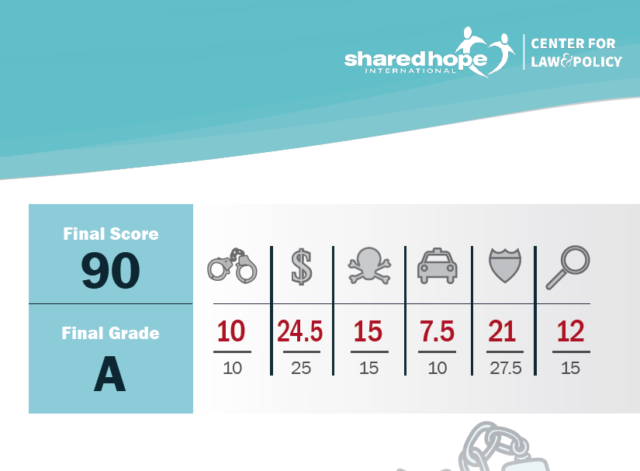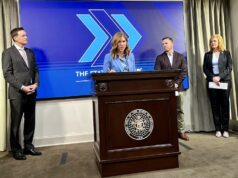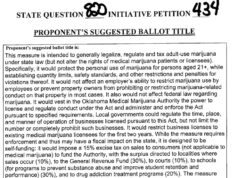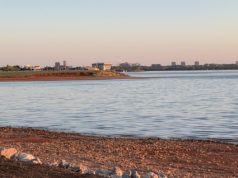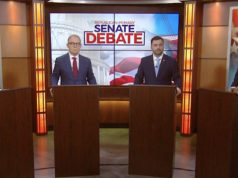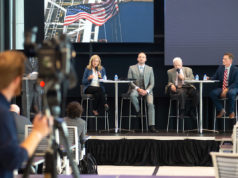In 2017, Oklahomans were reminded of an international scourge when former Sen. Ralph Shortey (R-OKC) pleaded guilty to child sex trafficking. Still, one group has scored Oklahoma positively for battling the epidemic at the state level.
In June, the U.S. Department of State released its annual Trafficking in Persons Report. In it, the U.S. as a whole received a Tier 1 rating, meaning the federal government continued to “fully meet the Trafficking Victims Protection Act’s (TVPA) minimum standards.”
The report also notes, however, that children — in particular those “in the child welfare and juvenile justice systems; runaway and homeless youth; [and] unaccompanied children” — rank among the most vulnerable populations subject to human trafficking in America.
Given that President Donald Trump declared January 2018 as National Slavery and Human Trafficking Prevention Month, now is as fitting a time as ever to take a look at how Oklahoma ranks within the larger, national picture of human trafficking, with a focus on the most vulnerable victims of this heinous crime: children.
Shared Hope International gives Oklahoma an ‘A’
Since 2011, the international human rights group Shared Hope International has provided an annual report card of child sex trafficking laws in states through its Protected Innocence Challenge. The challenge rates states on 41 legislative components related to the sexual trafficking of minors. Each individual component falls under one of six larger categories:
- Criminalization of Domestic Minor Sex Trafficking
2. Criminal Provisions Addressing Demand
3. Criminal Provisions for Traffickers
4. Criminal Provisions for Facilitators
5. Protective Provisions for Child Victims
6. Criminal Justice Tools for Investigation and Prosecution
Overall, Oklahoma scored a 90 out of a possible 102.5 points, which places the Sooner State directly at the threshold between the top-eight-ranked states in the nation and the 27 states receiving Bs in 2017. In categories 1 and 3 above, Oklahoma received perfect scores.
In category 5, however, Oklahoma falters, scoring only 21.5 out of a possible 27. The state’s report card notes eligibility requirements could thwart the attempts of some victims to receive financial compensation from the state. Among other shortfalls in this category: “Oklahoma law does not provide a mechanism for minors to vacate delinquency adjudications related to trafficking victimization, and juvenile records may only be expunged after a waiting period.”
Since 2011, Oklahoma’s score has risen three grade levels within the Protected Innocence Challenge’s metrics. Shared Hope International released its latest rankings Nov. 15, 2017, which notes that children may still face prostitution charges in 27 other states.
Other state child sex trafficking rankings
A-ranked: Tennessee, Louisiana, Washington, Florida, Texas, Kansas, Montana
B-ranked: Wisconsin, Minnesota, Michigan, Colorado, Mississippi, Georgia, Kentucky, Utah, Arkansas, Nebraska, Missouri, Nevada, Oregon, North Carolina, Iowa, Alabama, Arizona, Delaware, New Jersey, New Hampshire, Illinois, Massachusetts, Pennsylvania, West Virginia, Indiana, Connecticut, Maryland
C-ranked: Rhode Island, North Dakota, California, Hawaii, Ohio, Alaska, Idaho, District of Columbia, Virginia, South Carolina, Wyoming
D-ranked: New Mexico, Vermont, South Dakota, New York, Maine (SHI’s scoring system ranked Maine dead-last in 2017, with a score of 60.)
Background on Shard hope International
Based out of Vancouver, Washington and Arlington, Virginia, Shared Hope International is a nonprofit, non-governmental organization founded by former U.S. Rep. Linda Smith (R-Washington). Smith created the international human rights organization after seeing firsthand the toll of human trafficking on women and girls while making a humanitarian visit to a brothel district in Mumbai, India, in 1998.
Federal efforts against human trafficking
Since the turn of the 21st century, the Victims of Trafficking and Violence Protection Act has required annual reports on human rights practices as they exist in America as well as countries receiving financial and security assistance from the U.S. Originally signed by then-President Bill Clinton and subsequently re-authorized three times since under the George W. Bush and Barack Obama administrations, the TVPA represents a bipartisan effort to combat human trafficking at home and abroad.
A copy of Oklahoma’s full Protected Innocence Challenge report card is embedded below as well as an analysis and recommendations report.
